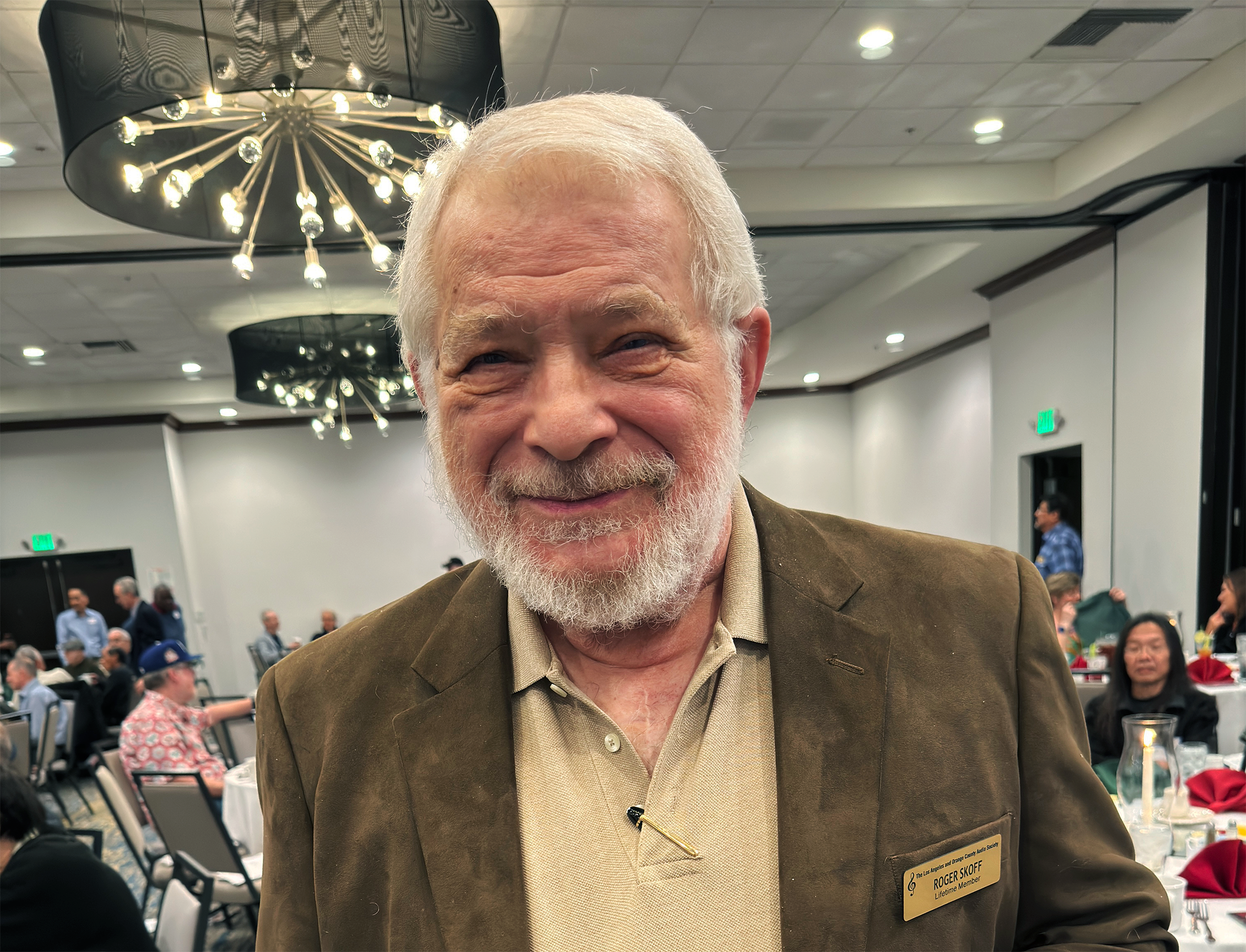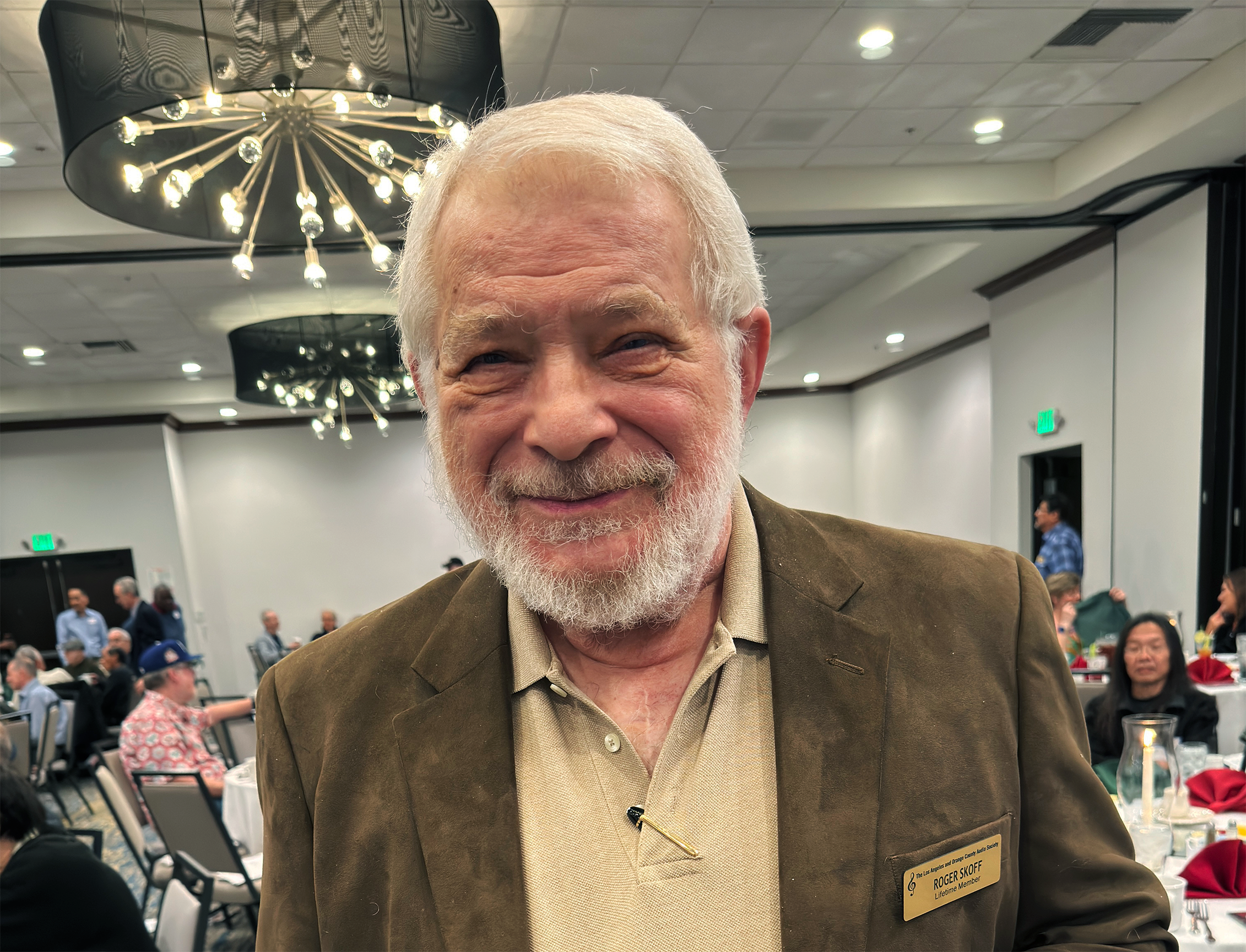
Roger Skoff writes about what might be the future of our hobby
So what do you do when there's nothing to do?
That's what a whole lot of us have had to figure out over most of the last year. Without restaurants, the movies, sports, concerts or other live music, without parties, the gym, or any of the other things we all grew up with—and even without going to work, in many cases—how do we make it through the day?
For many of us, surviving 2020 has meant becoming a couch potato, glued to the television set and absorbed into somebody else's problems for much of the day. (In case you're interested in that sort of thing, Netflix's Resurrection: Ertugrul has four hundred and forty-some episodes, and is quite good. Of course, it's in Turkish with English sub-titles, but, hey, it passes the time—and maybe you even speak Turkish.) Others of us have tried reading, re-learning (or learning for the first time) the art of conversation, or getting into music—not just as a background to something else, but as the main attraction.
Obviously, being into music is nothing new. Given the limits of the available media, Franz Liszt (1811 - 1886) may have been just as much a "rock star" in his day, with just as big and enthusiastic a fan following, as any we have now (HERE). And, more recently, Frank Sinatra, then Elvis, then the Beatles—to name just the first few that come to mind—have all had huge followings among the "bobby-soxers," "rockers," "hipsters," or whatever else their fans might have been called at the time.
What's happening now, though, seems to be much more than that, and involves not just a single artist or even a single musical genre. It's about a whole new approach to listening, taken by new groups of people, and spurred by new circumstances into what's looking more and more like it might become a genuine social and cultural revolution!
Ever since the first singing radio commercial, the first movie soundtrack, and the first music in elevators, we've all been surrounded by music for most of our waking hours. It's at home, at work, in our cars, and in virtually every place we go. Rarely do we ever even notice it, though, let alone give it our full attention. That's always been reserved to very special kinds of music or to those with very special interests, like music lovers, audiophiles, and fans (who may have loved the artists even more than they loved their music).
Now, though, with people trapped in place, with nothing to do and a limit even to the Ertugrul series (or to how many times you can watch got or Breaking Bad), more and more people are looking for something new as a pastime, and one thing that many of them are finding is music.
Maybe it's because of the recent popularity of headphones. (Although, without an interest in the music, why would people have bought them?) Or maybe people have been rummaging through their stuff and have come across their old record and CD collections. Or were given a fine collection by someone else that they're just now exploring. Or maybe they've heard great sound for the first time at a friend's home or a dealer's store; were blown away by it; and now want it for themselves.
Whatever the reason is, the word from dealers, from other manufacturers (Remember, please, that I'm back in business with RSX, a new cable line), and from the international distributors I've spoken with, is that the HiFi business is strong and its biggest current problem is just trying to keep goods on the shelves.
Most importantly, it's more than just long-time audiophiles and music-lovers who are doing the buying; it's practically everybody.
With the COVID shutdowns denying them social contact and, often, even the daily routine of going to a job to keep them occupied, people want things to do. They want hobbies and pastimes and, with the tremendous emotional power and near-infinite variety of musical expression available to them, music in all its forms, is becoming ever more appealing. Coupling that with the truly phenomenal ability of modern high fidelity recording techniques and playback gear to make people—if they can just put together the right system in the right room—feel like they're actually a part of the musical experience, HiFi audio is, for many people, coming to be the ideal hobby.
In fact, it may be even better than it seems: One of the most important requirements for any successful hobby is that it must be able to accept as much or as little time, money, and effort as the hobbyist is willing to commit. Another is that it must never, ever, be finished—otherwise the hobbyist would have to go find another hobby. Building a music collection and building a system to play it on both meet both of these requirements.
Not only that, but having a great-sounding system encourages buying more great-sounding recordings, which might be of almost any musical genre, so new kinds of music get bought and explored, which encourages exploring more genres, which results in buying more recordings, which results in…and around and around and around.
And having more recordings also provides the perfect excuse for buying more or better equipment and doing more to improve your listening room's acoustics, to make your sound even better. Turning that around works, too: The better the system gets, the better the music sounds, so the more recordings get bought. It's the perfect self-perpetuating process.
Now all that remains is to see if the newcomers to our hobby are really here to stay, or if their current interest in music and HiFi audio is just a temporary response to a temporary condition.
The vaccine is already being distributed. COVID should soon be a thing of the past. We'll see what happens.





































